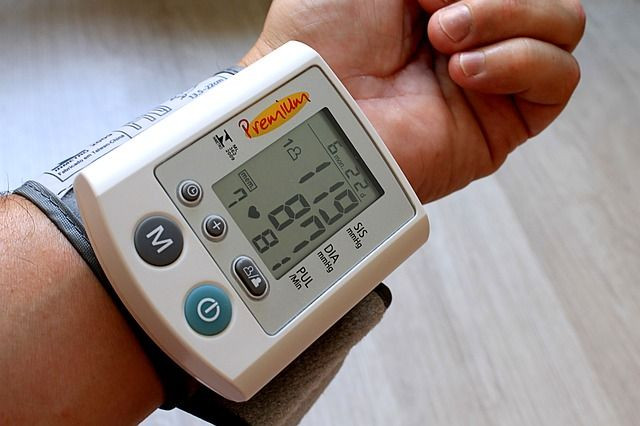With No Insurance, People Stop Taking BP Medicine

In 2019, researchers showed in a clinic-based study of 199 people with health insurance - and high blood pressure - that they were more than twice as likely to have that blood pressure well under control. It didn’t matter what color their skin was or what other illnesses they had. In 2016, researchers looked at 123,257 patients countrywide with self-reported hypertension; 62% had enough insurance. The others, either underinsured or not insured, were more likely to report not using blood pressure medication or not to have visited their doctor for a regular checkup.
Similar studies date back 13 years. In 2014, there were 35.9 million people, nonelderly folk, who were insured. In 2018, that number dropped to 27.9 million.
The point of all this? The healthy trend was found to be reversed in an online September JAMA article and it apparently did not happen in a vacuum.
15-Year Trend Reversing
This new study found that people with high blood pressure are less likely to know how to control and treat their condition, reversing a nearly 15-year upward trend in hypertension awareness. These researchers found that one reason participants whose blood pressure was controlled with medication were more likely covered with private insurance, Medicare, government health insurance versus the uninsured.
The study was funded by the National Heart, Lung, and Blood Institute (NHLBI), part of the National Institutes of Health. The backsliding could make longstanding efforts to fight heart disease and stroke even more challenging, wrote the study authors.
“Reversing this decline is important because we don’t want to lose public health achievements built over prior decades,” Lawrence Fine, MD, study co-author and chief of NHLBI’s Clinical Applications and Prevention Branch said in a press release. “It is a challenge for the scientific community to investigate the causes of this unexpected downward trend. But developing more effective strategies to reverse and substantially improve blood pressure control is critical for the health of many Americans.”
According to the Mayo Clinic, high blood pressure generally develops over many years and usually has no signs or symptoms. But uncontrolled blood pressure increases one’s chances to develop heart disease or a stroke, which are the first and fifth cause of death in the United States, according to the Centers for Disease Control and Prevention.
In what is called secondary hypertension, blood pressure increases can be traced to identifiable reasons, such as obstructive sleep apnea, kidney problems, an adrenal gland tumor, and stress, especially this year with the pandemic, the economic uncertainty and so on.
The Latest Study Findings
The new JAMA study included 18,262 adults with high blood pressure, aged 18 and older. High blood pressure was defined as a reading of 140/90 mmHg or higher, or people being treated for high blood pressure with medication. Another 33,499 people were included for analysis purposes, for a total of 51,761 participants.
Using data from the National Health and Nutrition Examination Survey (NHANES) from 1999 to 2018, researchers looked at 20-year trends in high blood pressure awareness and treatment of high blood pressure control. Participants had their blood pressure taken 3 times and then averaged.
In 1999 to 2000, the authors found that 70% of participants were aware of their condition. By 2013 to 2014, that figure increased to 85%, but dropped to 77% in 2017 to 2018.
Overall, the study found that the percentage of adults controlling their high blood pressure rose from 32% in 1999 to 2000, to 54% in 2013 to 2014, before falling to 44% in 2017 to 2018. In the 20-year span covered by the study, people taking blood pressure medication rose from 53% in 1999 to 2000, to 72% in 2013 to 2014, and receded to 65% in 2017 to 2018.
According to the study, between 2015 to 2018, adults age 60 and older, as well as Black Americans as a group, were less likely than those age 18 to 44 and whites as a group, to have controlled blood pressure. Medicaid participants were more likely to have their blood pressure controlled compared to people without health insurance.
This Is a Set Back
“The reversal in hypertension awareness is a real set back in the fight to reduce heart disease and stroke,” Paul Munter, PhD, lead author and professor and associate dean for Research in the School of Public Health at the University of Alabama at Birmingham said in the press release. “While lifestyle factors are big contributors to hypertension, awareness and appropriate treatment are key to lowering blood pressure and keeping it in a healthy range to greatly reduce the risk for heart disease and stroke.”
The CDC advises people to prevent or manage their blood pressure with the following: eat a healthy diet, including limiting salt and alcohol; keeping a healthy weight; not smoking; managing stress; and exercising 150 minutes a week.
“Educating patients and providers on blood pressure goals, adding effective blood pressure medications when lifestyle changes aren’t enough, and reducing barriers to achieve high medication adherence in a variety of clinical practice settings are just a few strategies that may facilitate increases in blood pressure control rates and reduce health disparities we identified in the current study,” Dr. Munter said.
Published by Medicaldaily.com



























